Some Words On The Books I Read In November
Words on books by Harry McNabb, Benjamin Drevlow, Ana Carrete, and Timothy Willis Sanders
Hi! Welcome to the first edition of Some Words On Some Books, a monthly newsletter where I talk a little about all the books I read that month.
I guess I should start this first newsletter with a little introduction. My name is Justin Carter. I’ve previously served as the reviews editor of Mid-American Review and Entropy and I currently serve as…well, as nothing, as far as the literary world goes. I left academia for a sports editing job a few years ago and I didn’t really think a lot about books.
And then I became a dad and I started reading again, and it made me miss talking about books, so I started this newsletter to talk about books.
(I also published a poetry collection this year. This newsletter isn’t some backdoor attempt to sell books—I won’t mention Brazos again after this—but I thought I’d mention it here.)
So, on to some book reviews. If you’re an author or editor and want me to review your book(s) in the future, shoot me an email with an electronic copy and I’ll add it to my pile: justinryancarter [at] gmail [dot] com.
Books I Read In November
(this should be) a book of poems by Harry McNabb (Alien Buddha Press, 2024)
A couple months ago, Alien Buddha Press posted about their digital subscriber program—$25 for a year of books, which seemed like a really good deal. I don’t think I was expecting the steady barrage of books I’ve gotten, far more than I can reasonably work through, but I’m gonna try my best.
The first one of these I read was (this should be) a book of poems by Harry McNabb, a book based around the conceit that there were supposed to be poems in the book, but all we got were excuses for why there were no poems.
I love a good meta idea.
I especially love it in poetry, a space where it feels like we don’t always get writers exploring these kind of themes, these ideas of impermanence and distraction and the whole concept of poetry.
The book also features a lot of unexpected images: “stalactites of/ old vanilla pudding” might be my favorite.
Honky by Benjamin Drevlow (Cowboy Jamboree Press, 2024)
I’ve got a lot of thoughts here and I don’t know where to start.
Maybe with the whole line between fiction and non-fiction thing, which was always interested—this is described as “stories,” but the narrator is named Benjamin Drevlow. How do we make sense of this? Ehh, maybe we just don’t. It’s one of those things—part of the tapestry of this book.
I kept thinking about Scott McClanahan while reading this, because it’s the same kind of thing—work that lingers in some space between fiction and nonfiction.
The use of present tense in a collection like this that feels so reflective is such an odd choice that also works perfectly for what this book’s doing. It creates some funny moments—a present-tense story that refers to a “future ex-wife” feels like a wink at the audience, right? But it also creates tension—we know this thing is going to end, so we’re participating in that ending.
Beyond that, the most striking thing to me is the way Drevlow writes about race here, especially the juxtapositions of whiteness and blackness, which is something white writers don’t really address enough.
It’s not that Drevlow necessarily pokes fun at whiteness—it’s more that he’s able to think about these issues in a way that reflects the neurosis of trying to be a good ally while also worrying about how the process of being a good ally is fraught with pitfalls.
It’s a blunt look at what it is to be white, but not in like a…bad way, you know?
White writers who are aware of the way whiteness operates need to address it because otherwise, we’re just ceding discussion of whiteness to the alt-right, and we can’t let white supremacists be the only ones talking about whiteness.
Also there’s a lot of basketball here, specifically in the first half of the book. I work in sports, so I’m always a sucker for the intersection of sports and literature. Check out this story that’s in the book for a good teaser of what this collection (or whatever we want to call it) is all about.
Baby Babe by Ana Carrete (Civil Coping Mechanisms, 2012)
I’m not sure what prompted me to revisit alt lit this month, but between this book and another I’m currently finishing up (see below), I guess I felt like dipping my toes back into the world.
I don’t love the poetry that emerged out of alt lit. I mean, there were a handful of writers who I thought were doing interesting stuff, but largely what I thought “worked” with alt lit was the prose, where what Kenneth Goldsmith called the focus on “direct speech, expressions of aching desire, and wide-eyed sincerity” had room to stretch its legs.
But Ana Carrete — or Ana C as she often published under — was always one of the poets who I thought was doing the style right. Alt lit poetry always felt like something that was aggressively unpoetic, in that it lacked the lyricism and images that dominated academic poetry of the era. As a reader, that simply isn’t what I’m turning to poetry for these days.
But Ana’s work transcends that. The frankness she writes with—there’s an intimacy that the reader is brought in to. When I revisit other alt lit poets, I’m met with this sense that the work is trying too hard to seem effortless. Not so here. It feels like we’ve been let into the poet’s mind, not that we’ve only been let into what the poet thinks the mind is. I hope that makes sense.
Orange Juice by Timothy Willis Sanders (Publishing Genius, 2010)
Like I said above, I decided to read some alt lit, and this was the prose I decided to read.
Aside from the whole thing where writers in this era used celebrity names as character names in a way that got a little annoying, this book holds up really well. (And even that trope isn’t really an issue here, as Sanders employs it in just one of these stories.)
I think where this kind of text shines is when it dives into the minutiae of interpersonal relationships. Sanders spends a lot of time focusing on talking and thinking—characters say things, characters reflect on things, and there’s often conflict between what a character says vs. what they may have wanted to say. The conversations reveal how the relationships work here.
Everything is filtered through the point of view of the main characters. It’s a very, very close third person narration here.
These stories really get into the heads of their characters. The closeness between character and reader creates tension and drama in stories that aren’t really about much—there’s no complicated plots here. Characters live their lives. They have relationships. We don’t need a lot of twists and turns. This is a book about the small moments, the small conflicts.
Thanks for reading some words about some books! See you again in a month!

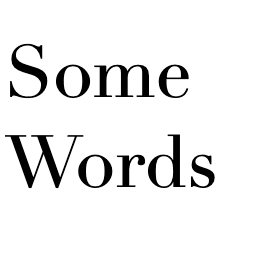


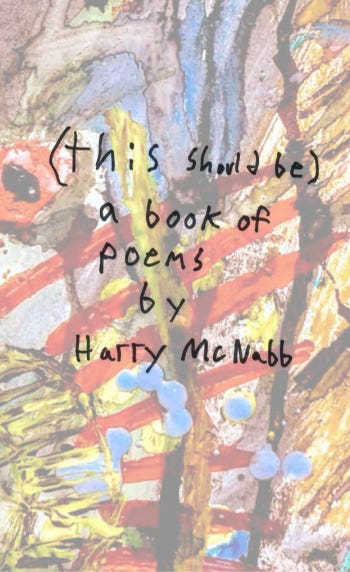
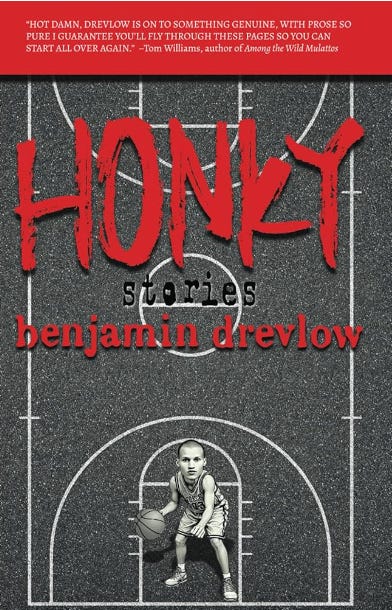
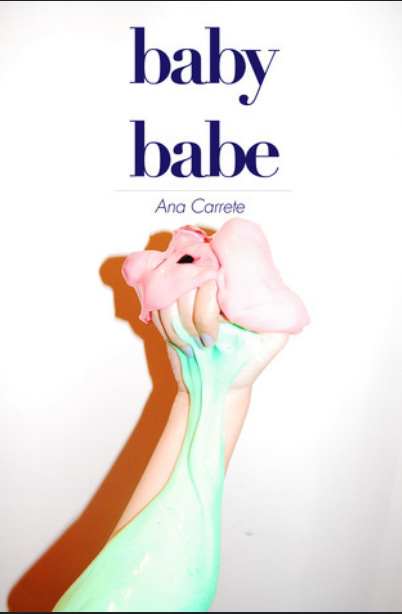
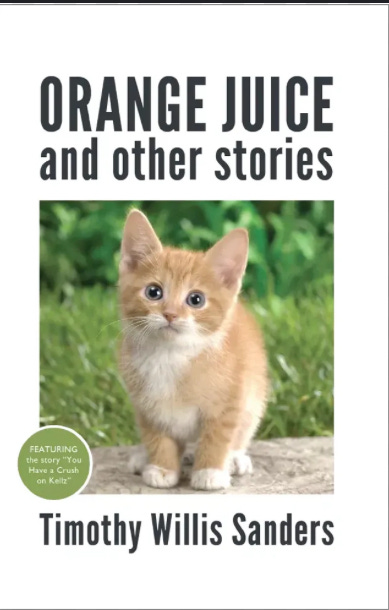
"stalactites of old vanilla pudding" is a bar.